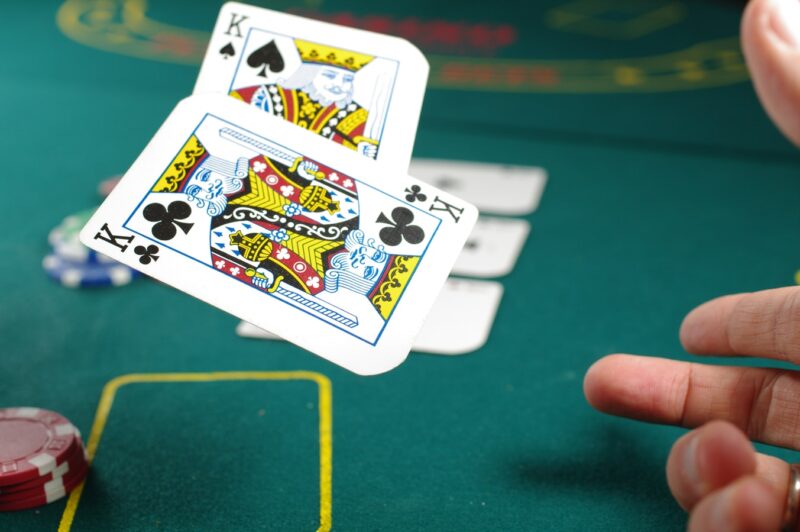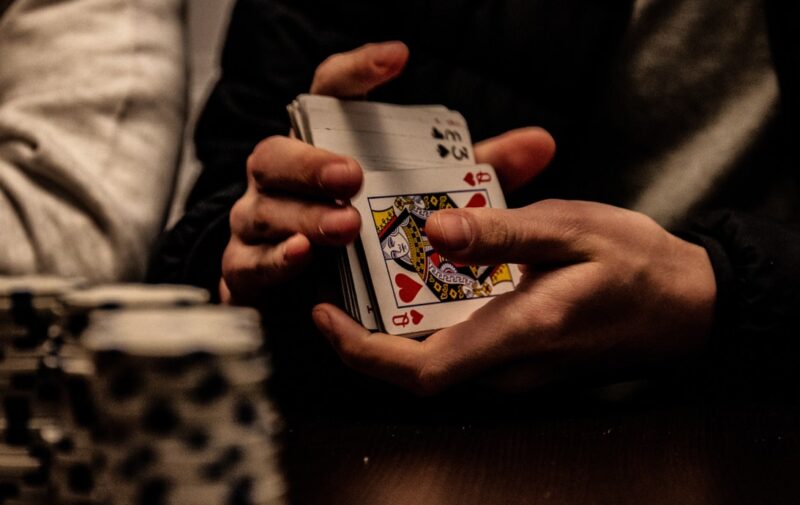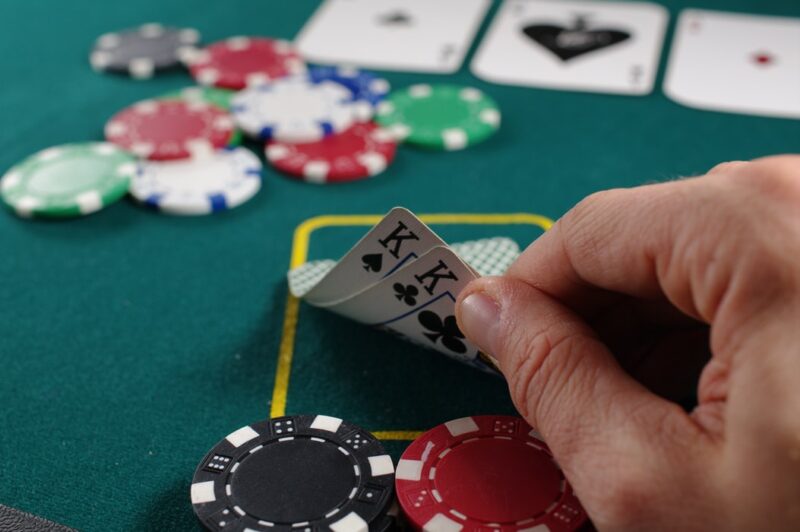Do you want to take your game to the next level? Then you’re going to need to be willing to take an inward gaze and find out what aspects of your play need to be improved upon. Today, we’ll help steer you in the right direction by narrowing them down to a list of 4 categories.
But before we do, there’s a very important concept you need to understand so you won’t fall into the trap that preys upon the inexperienced players; namely, the light-headed approach of playing poker. Instead, the very first thing you should do is to adopt the correct mindset and set realistic expectations.
Setting realistic expectations

If you think that being good at poker takes nothing more than playing the right hands and tossing some chips around the table, you’re in for a rude awakening. The reality is, not only will you have to learn the rules of the game inside and out, but also get good at calculating odds so that you recognize an opportunity you can capitalize on as soon as it presents itself.
Picking your battles wisely is another important part of the overall equation. Unless you learn how to pick a reliable platform, none of the things we’re about to discuss today will make a difference. In other words, you should stick to those with a proven track record of satisfied customers, so you won’t encounter any payout issues later on down the road.
Last but not least, know that playing poker is a marathon, not a sprint. Yes, you may very well end up lucky and land a lucky shot one night, but if you want any kind of long-term sustainability, you’re going to need to do some heavy lifting and brush up on some ABC poker essentials.
With that out of the way, here are 4 essential skill categories for a poker player to master at any level of play:
1. Discipline

Everything begins with your mindset. If there is one thing to take away from this entire post, it’s this.
Are you the kind of person who tends to give up easily upon bumping into the first obstacle? Then you have two choices: either work on your mental fortitude and search for a solution or forever be stuck on the same skill level. It may not be the most sugar-coated way of saying it, but it’s the truth.
Realize that poker is prone to variance, just as any other form of gambling. Over a short sample size, the effect of variance is greater compared to the one observed over a longer period of time. That’s one of the things beginning poker players often fail to comprehend. You see, poker is not about being right all the time – it’s about making the odds work in your favor and having the right frame of mind so you can hold your ground even when nothing seems to be going your way.
Developing a solid mental fortitude is the one thing that will help you keep your head in the game and deter you from making decisions that are based on your current emotional state. Winning or losing, your strategy should always be constructed away from the pressures of the table. This will prevent you from making costly mistakes that could dwindle down your chip stack before you know it.
Know that there is nothing wrong with walking away and calling it quits for the rest of the day if you feel your blood pressure rising. In fact, coming back another day when you’re well rested and not under the influence of your emotions is the only responsible thing to do.
The first step towards mastering the game is to conquer your mind.
2. Maths

Before you can start being more serious about your hobby, you’re going to need to learn some fundamentals when it comes to calculating odds (we talked about it here). This will tell you about where you stand not only in terms of your own cards, but in relation to your opponents (if you’re playing a ring game, for example). And once you master this aspect of your game, whatever move you end up making will be played out with confidence, knowing that you’ve chosen the right thing regardless of the outcome.
To illustrate an example, let’s say there’s a move that has a favorable outcome 70% of the time. Even if you make it 10 times in a row and it all somehow results in an unfavorable outcome due to bad luck, you should still keep making it in the future. Why? Because you’re in it for the long term. This is how you can make the odds work in your favor.
3. Risk vs. reward

Knowing how to balance risk vs. reward is a skill that builds upon merely knowing the odds. Another way to put it is to know when chasing a reward is worth the risk incurred. Have you invested a sizable chunk of your stack into the pot? Then you should probably see it to the very end. If not, consider whether folding may be the better path to take (again, these are simplified illustrations to help illustrate the point).
Another example where knowing odds and risk/reward comes into play is knowing what cards can improve your hand and how likely you are to get them. If you’re holding 8 and 7 of hearts, and the board is 6 of hearts, 5 of hearts, and another random card (let’s say Jack of diamonds), you have plenty of opportunities to improve your hand in later streets. If you manage to hit 9 or 5, you’ve completed a straight. And any X of hearts will complete your flush. As you can see, in this case, improving your current hand is very likely as you have plenty of outs.
Good poker players know how to pick their battles. Sometimes, when the reward is not worth fighting for, they will fold their hand to pick a better spot. And when the numbers justify doing so, they will not shy away from taking a calculated risk.
4. Psychology

The final piece of the puzzle is knowing not only how to tame your own mind, but also understand the psychology of poker. If you’re playing against a human opponent, bluffing becomes and option you wouldn’t have otherwise. But just like anything else in poker, you have to know when bluffing is worth the risk of you being called out on it.
Has another player lost due to a bad beat recently? Then chances are they’ll get infuriated by it, thus making irrational and often reckless plays to compensate for it. Learn to spot these situations and capitalize on them.
At the same time, learn how to mask your own emotions if you’re playing at a casino live. Otherwise, other players will read you like a book and exploit them. By learning about body language and poker tells here, you’ll be better at reading the mind of your opponents while concealing your own.
Conclusion
All of the skills mentioned above are essential to master before you even start thinking about joining the ranks of the pros. As for the rest, practice is key!
 Poker Players Alliance Casino & Gambling Articles 2024
Poker Players Alliance Casino & Gambling Articles 2024






